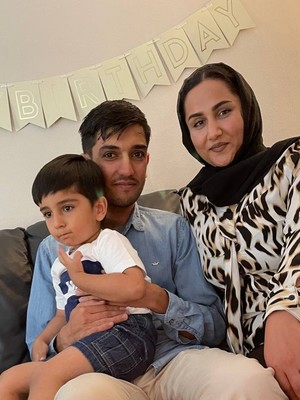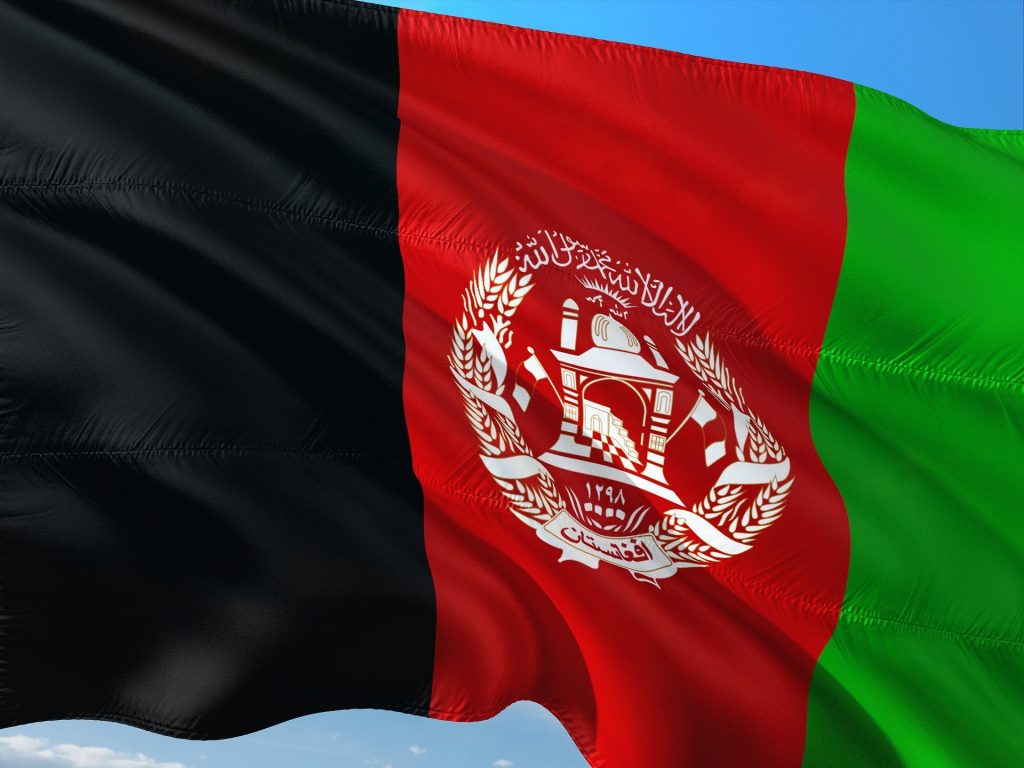Afghans Talk About Life In Wisconsin
One year after fleeing their homeland, it's 'a kind of cultural shock.'
Farahnaz Asghari lives in Appleton with her husband and three-year-old son. Every morning, she video chats with her family back in Afghanistan. It’s been about a year since she last saw them.
“I cannot start my day without talking with my family members. Actually, there is a 10-hour time gap between here and their country. So in the morning for me, it’s at night for them,” Asghari said. “It helps me a lot. It makes me so happy to be able to at least talk to them, if I cannot see them for a long time.”
But for Asghari and most other Afghan refugees, leaving their home country was just the beginning of a months-long process to resettle in the United States. Now one year later, many are still navigating life in their new country.
Missing family but finding new work
Because of her husband’s work for the U.S., Asghari said her family was eligible for a Special Immigrant Visa, or SIV, before the Taliban took control. But they weren’t interested in leaving their life and family in the northwestern province of Herat. Asghari worked with women in her community at a U.S.-funded cultural and education center and her husband had a job in IT.

Farahnaz Asghari, right, with her husband Ali Ahmad and three-year-old son Hannan. Courtesy of Farahnaz Asghari
But everything changed when the Taliban came to power in mid-August last year. Many Afghans who worked for the U.S. military or American-backed organizations feared retaliation by the armed Islamist group. Because of their work for U.S.-funded projects, Asghari said she and her husband quickly decided they needed to leave their home.
With thousands of people crowding the airport in Kabul, they didn’t make it out in the evacuation at the end of August. In early September, Asghari, her husband and child traveled to Pakistan and then to Doha, Qatar. They were eventually flown to a military base in New Jersey and lived there for three months before finally being resettled in Appleton.
Asghari said one of the hardest parts of living in Wisconsin is being away from family. It’s been especially difficult for her three-year-old Hannan, who she said was very attached to her mother- and father-in-law.
But she thinks they’ve had an easier time settling in their new home than other Afghan families because they already spoke English.
“There is not, I mean, a lot of translators and interpreters here. So, for us, I think it was somehow easier to adapt ourselves because we spoke the language. We started working like a few months after coming to Wisconsin,” Asghari said.
Getting to the grocery store or doctor’s appointments has been a challenge because they don’t have a car, Asghari said. Instead, they’ve relied on rides from local volunteers through World Relief Fox Valley, the organization helping her family with the resettlement process.
“Everything is different here than the country we were living in. So here the people are just trying to learn everything,” she said. “Mostly the women are illiterate. And so it’s difficult for them to learn the language to be in contact with their children’s schools. So it’s a kind of cultural shock.”
Asghari said she wants her fellow Wisconsinites to know that the more than 800 Afghans who have resettled in the state over the last year all come from different backgrounds and life experiences. While some are familiar with technology and Western culture, others are from poorer communities and have more to learn as they adjust to life in the U.S.
Struggles with English and an uncertain legal future
A, who asked to use only his first initial out of fear for his family in Afghanistan, has had a harder time settling into his new home in Wausau.
In 2021, A was a soldier and medic for the Afghan military in the Khost province in the southeast. When the government fell to the Taliban, he decided his wife, five children and his parents would be safer if he left the country. He flew from Kabul to Qatar, then to a military base in Germany and eventually to a base in the U.S. where he waited for resettlement.
Speaking through an interpreter, A said he doesn’t know many of the details of how he made it to his new home. A doesn’t speak English, which he said has been his biggest challenge since he arrived in Wisconsin earlier this year. He’s enrolled in an English language learning program, but he said it’s often difficult for him to find the time and transportation to make it to class.
A said he’s proud to have a job at a local cheese manufacturer, so he can support his family back home. Many Afghans lost work and income during the Taliban takeover, and A said his family has been struggling financially.
He’s also proud he made the choice to leave his home, adding that many of his friends from the military who stayed in Afghanistan have been killed or are living in hiding.
“That has decreased the problems for my family as well because I am away from them. If I was there, it might have caused problems for them because I was under threat,” he said through an interpreter.
When he thinks about his future in the U.S., A is most worried about the fact that he hasn’t heard back about his application for legal permanent residency, commonly called a green card. Many Afghans who were evacuated last year were accepted into the U.S. under what’s called humanitarian parole, an infrequently used status that does not guarantee permanent residency in the country. Since arriving in the U.S. last fall, Afghans in Wisconsin and across the country have been going through the process of applying for an SIV, asylum or another immigration status.
A said he hasn’t heard back about his application, and that’s made his family nervous about his future here.
“My family is worried, saying, ‘You are in America and one year has been spent, and you don’t have any legal documents to stay over there or any documents that could help you,'” he said.
Once he gets a green card, A said he’ll be able to bring his wife and children to the U.S. But he also hopes to one day bring his parents and brothers, who he said are just as endangered by his ties to the previous government.
‘Everything is different here’: Afghans living in Wisconsin reflect on 1 year since fleeing their homes was originally published by Wisconsin Public Radio.





















